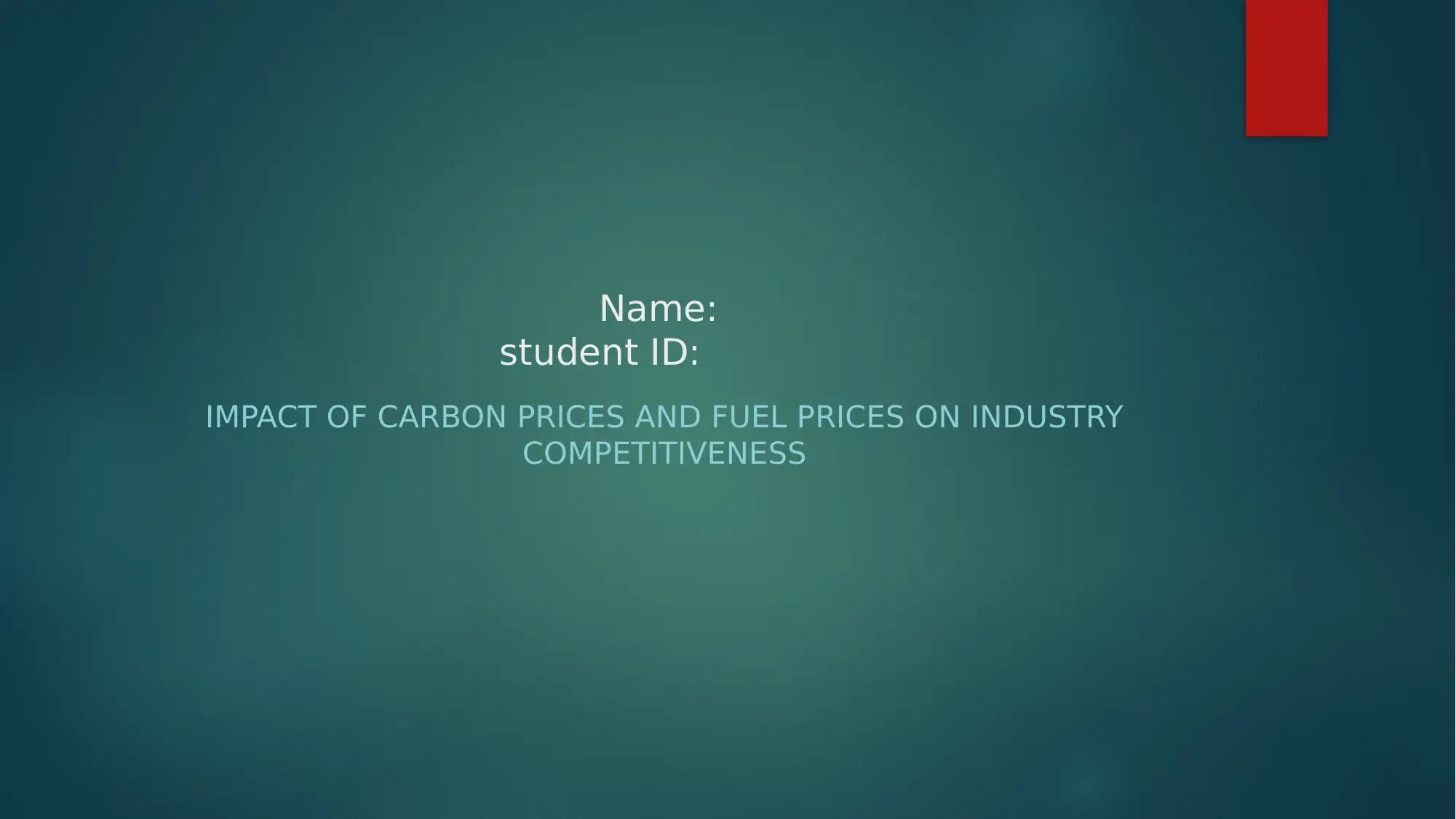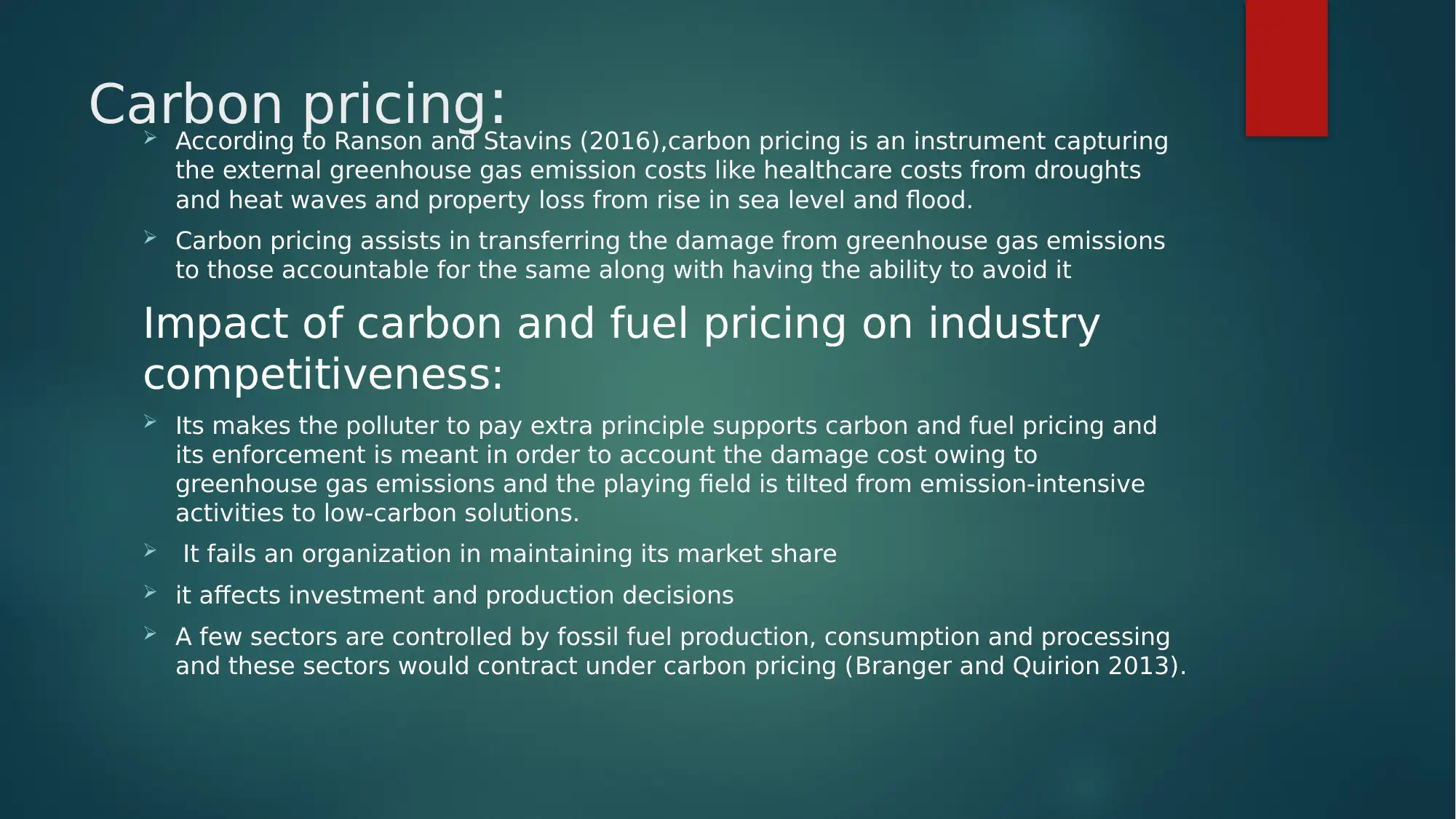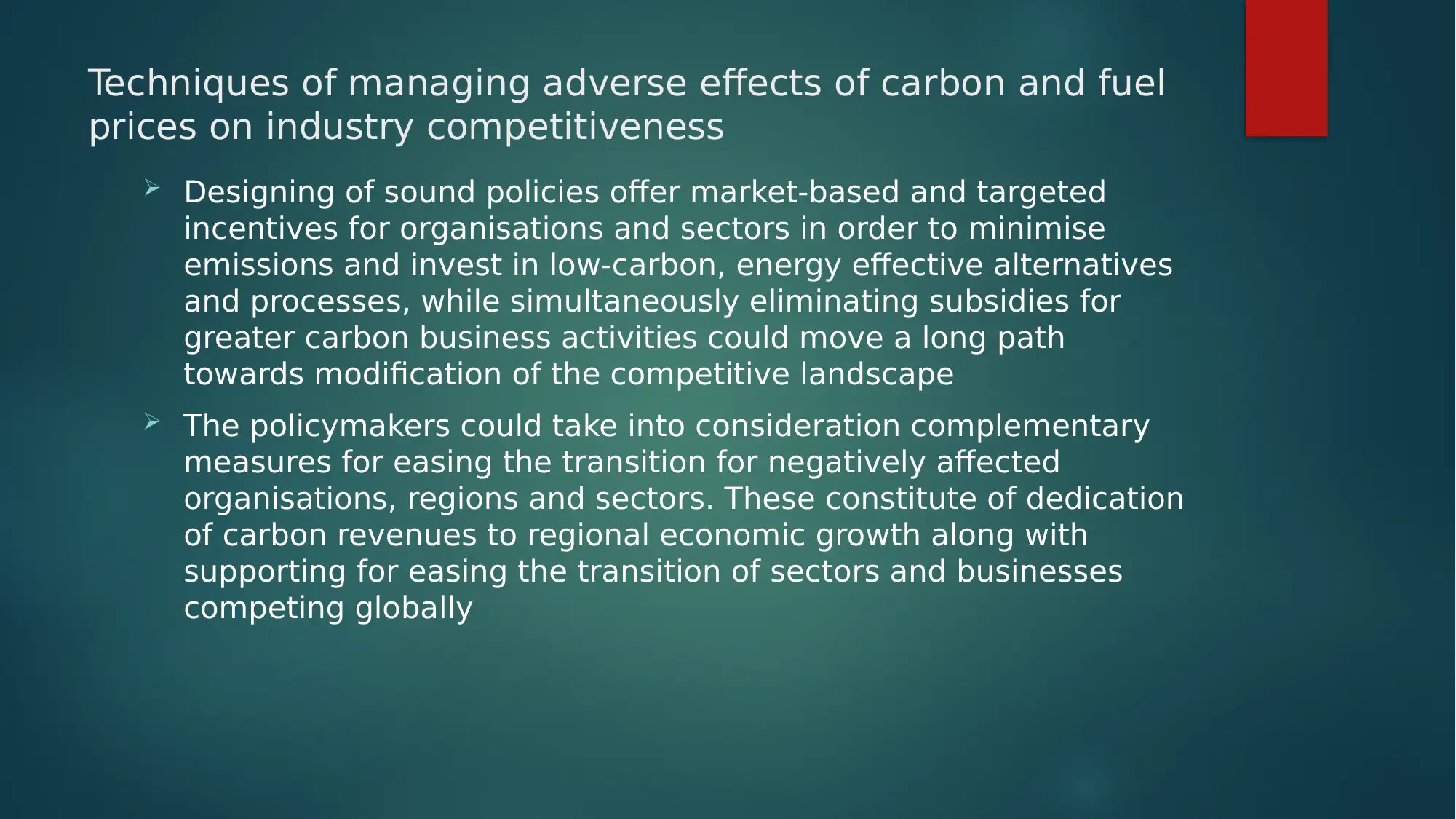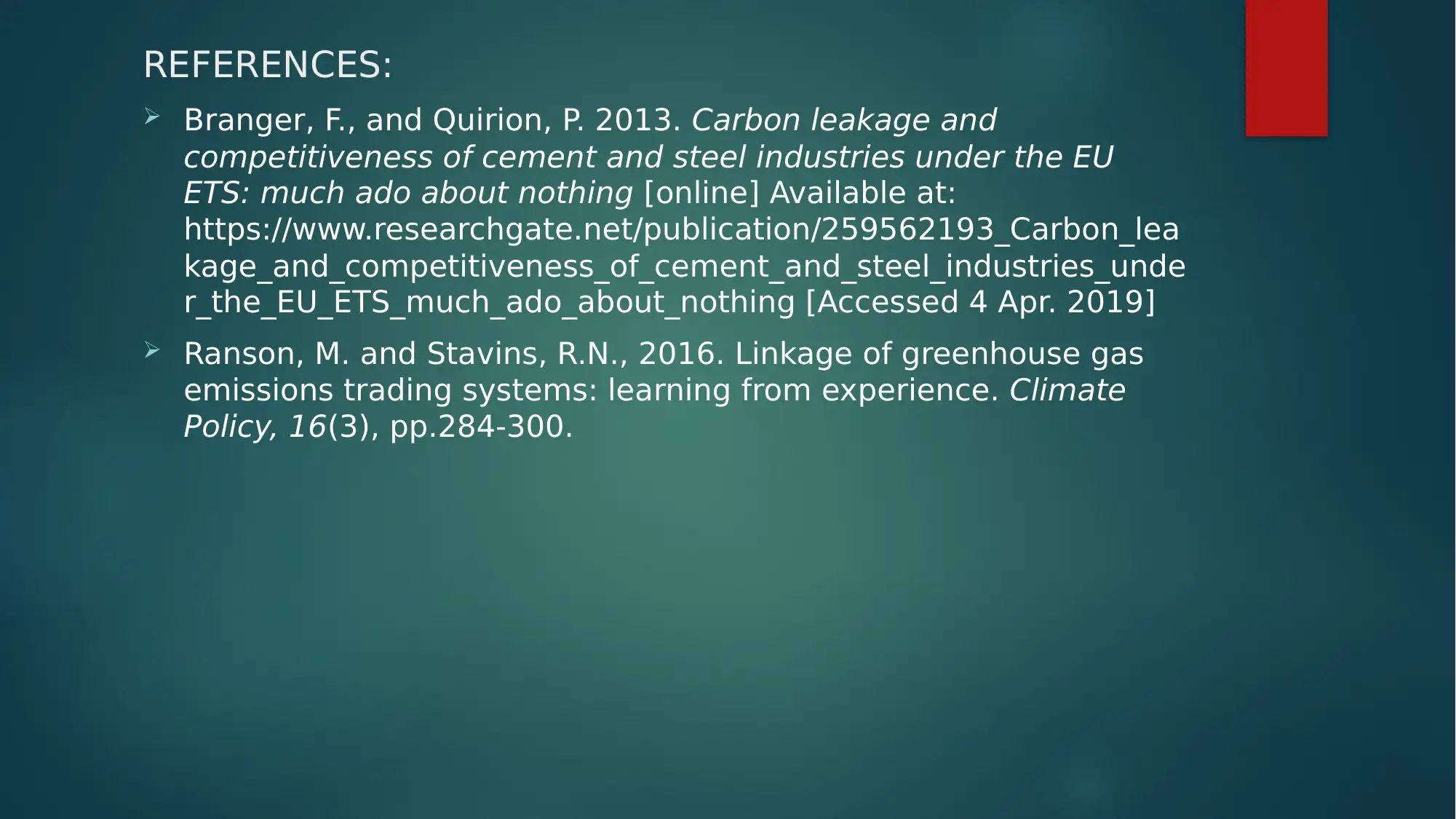Analysis of Carbon and Fuel Prices on Industry Competitiveness
VerifiedAdded on 2023/01/17
|4
|376
|30
Report
AI Summary
This report examines the impact of carbon and fuel prices on industry competitiveness. It begins by defining carbon pricing and its role in addressing climate change, emphasizing the principle of making polluters accountable for greenhouse gas emissions. The report then explores how carbon and fuel prices affect industry competitiveness, including potential impacts on market share, investment, and production decisions, particularly in sectors reliant on fossil fuels. It highlights the importance of designing sound policies and implementing market-based incentives to reduce emissions and promote low-carbon alternatives. The report also suggests considering complementary measures to support businesses and sectors negatively impacted by carbon pricing. The report concludes with a discussion of carbon leakage and the need for effective strategies to mitigate its effects.
1 out of 4











![[object Object]](/_next/static/media/star-bottom.7253800d.svg)